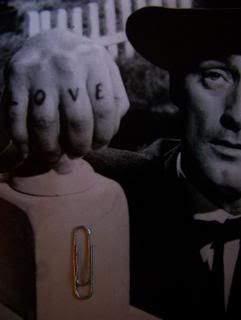Which is to say, now that our semester's work is done, I'm feeling a bit listless. Basically, I'm not writing all that much. I had big plans for these days--I was going to work hard on my novella; I was going to edit my ghost story to its natural degree of awesomeness; I was going to write actual letters to my greatest friends, telling them how much I love them (this last one came to me in a fit of unrequited enthusiasm.)
Instead, I'm cooking massive pots of soup. I'm eating glorious dinners. I'm drinking too much wine. I'm hanging out, talking. And, finally, four years after the purchase, I'm reading the instruction manual for my camera.
So, yeah, I'm doing all kinds of Not Writing. But you know what? I'm not really feeling so bad about it. I'm feeling like I've written enough over the past months. I need to take a break.
So why am I here, writing a blog?
Well, for one thing, I'm wildly addicted to writing. When I'm not writing I feel itchy. I actually feel itchy. It's an acute physical sensation.
So, I'm itching my elbows and wondering: Is it even possible to take a break?
I mean today I wrote: two or three meaningful e-mails, one very meaningful Christmas card, two or three meaningful messages on Myspace, and about twenty Myspace comments.
Yeah, it's true: instead of working on my novella, I've been tooling around, posting comments on Myspace. I kind of like this one:
"I think I can accurately say I eat more chicken any man ever seen. Do you agree?"
This is a comment I posted on my wife's Myspace page at approximately 4:49 PM.
Elsewhere, I wrote:
"I am chicken."
~Seth, upon being asked, "Do you do chicken?"
Writing this, weirdly, satisfied me. Reading it, weirdly, also satisfies me.
Remember when I said:
Blogs, letters, e-mails--to me, they're part of it, just as important as the "real" work. Your writing life is just that, your life. When you write a blog, it's not like the blog is not you--it is you. I mean do you really look at your writing as something outside your life? You move from one to the other. You write. You figure things out. Without the blogs, you'd be itching to write elsewhere--you'd be sending mad e-mails; you'd take up letter-writing, you'd deliberately fog your bathroom mirror just so you could finger a few lines on the glass.
I think I'm ready to say, for sure, that writing a Myspace comment often fulfills me as much or more than working on my novella.
***
Recently Janet wrote a review of a book by Marie Phillips called "Gods Behaving Badly" for the NYTimes.
Here's a brief excerpt from the review:
"Ms. Phillips’s premise is that the Greek deities have collectively suffered a whopping reversal of fortune, but that they still endure tenuously in the modern world. They live together in a disintegrating London house with a laurel-wreath knocker (nostalgia counts for a lot here) on the front door. Thus ensconced, with time on their hands, they trade spiteful wisecracks about the glory days."
The book looks ridiculous, but that's besides the point. Janet's not entirely kind in her review. Later, she writes:
"In a story so conventionally constructed that it suggests the help of fiction-writing software (yes, there is some), “Gods Behaving Badly” injects a pair of human lovebirds into the world of its downtrodden deities."
Finally, she writes:
"...although Ms. Phillips fulfills her purely lighthearted ambitions for this story, she provides a cautionary example to budding novelists everywhere. Though her background includes stints as an independent bookseller and BBC researcher, she also has a blog full of her thoughts about the hot competition on a television dance-contest show. When writers lived on Mount Olympus, they didn’t talk about things like that."
What the fuck, exactly, is Janet Maslin trying to say?
Basically, she's saying: Of course this novel is a joke, but more than that, the writer is a joke too. At the very least, she's certainly not a serious writer, an Olympian, as she most certainly should aspire to be.
I cringe. What would Janet Maslin have to say about my obsessive Myspace commenting?
Maybe it's just me, but I look at every venue as just another genre. Right now, I'm really working on my Myspace commenting. I'm trying to become a Master of the Genre. I've even met a few Masters. Recently, I discovered a new Master. His Myspace name is boxy and if they ever decide to give a Pulitzer for Myspace comments he will be nominated. From him, I've re-affirmed that the Myspace comment can be: offensive, hilarious, and utterly illuminating.
A few weeks ago, I was deeply immersed in my novella, so deeply that I couldn't even fathom taking a week or two off. Now I'm like novella-shmovela. I have Myspace comments to write!
***
An admission: I've been cooking dinner and writing this blog at the same time.I would never do that when working on my novella.
But what if I did?
If all writing is the same, as I'm trying to say maybe it is, then why do I always set aside the most special time for my novella? Why do I pace around beforehand, procrastinating?
Perhaps I take it more seriously. Perhaps not. Maybe I'm just psyching myself out.
Whatever. Dinners almost ready.
I have wine to drink, chicken to eat.










